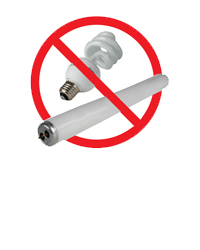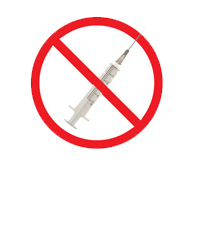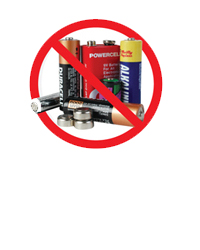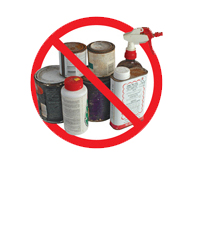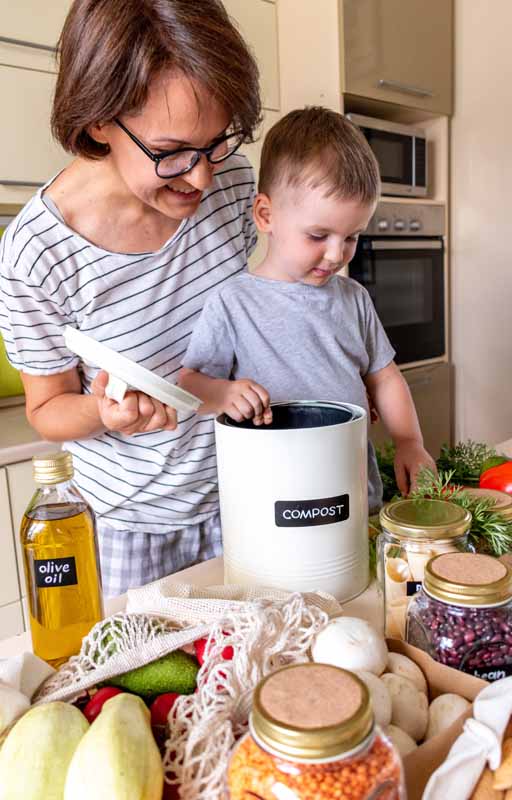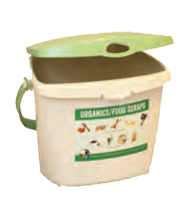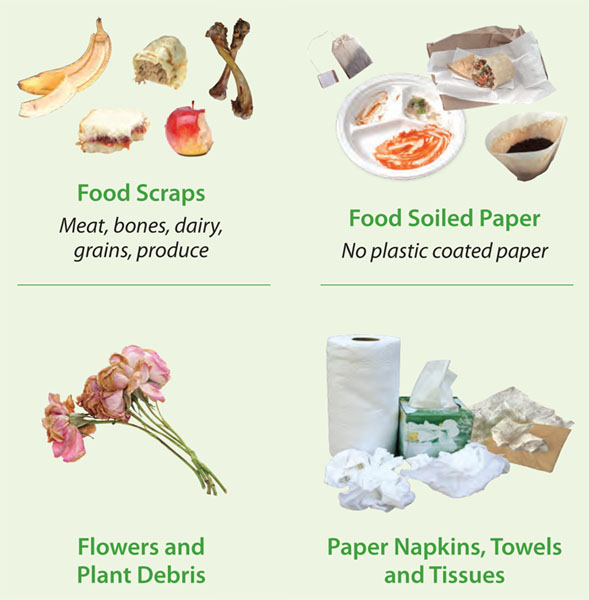| Attention: New Compost and Recycling Law Effective January 1, 2022, a new California law (SB 1383) requires that compostable materials, be kept out of landfills—including food scraps, paper, cardboard, and plant trimmings—to prevent the production of methane, a potent greenhouse gas. In Alameda County, the law is implemented under the Organics Reduction and Recycling Ordinance. Multifamily properties must subscribe to compost and recycling collection service, set up color-coded and labeled indoor bins, ensure proper sorting, and educate tenants about the law at least annually and within two weeks after move-in. |
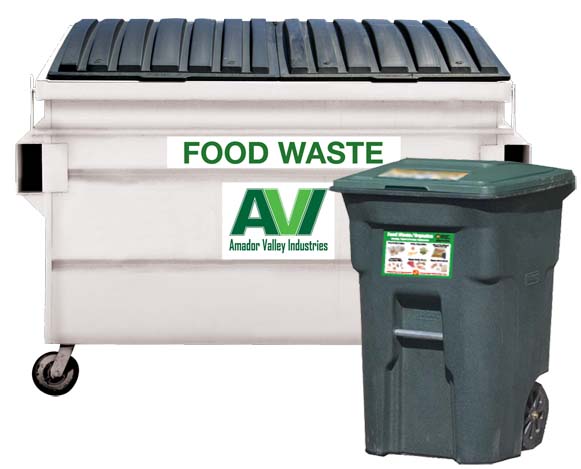
Please no plastic or plastic bags, glass, metal, or liquids in your compost cart.
All material placed in the compost/food scraps container is made into compost used to nourish local farmlands, Please only put food scraps, food soiled paper and plant debris in the compost container.
For program rules, including more detailed information regarding accepted (and prohibited) items, download our Apartment How-to-Guide.
| Warning! It is illegal to dispose of hazardous materials in garbage or recycling containers (see below for prohibited items). Improperly disposing of hazardous and toxic waste can result in serious harm to the health of people, pets, wildlife, and our environment. Containers found to have these materials will not be collected until such materials are removed. Alameda County offers free drop off locations for hazardous and/or universal waste. For more information, please visit the StopWaste.org Household Hazardous Waste for Residents website, or call 1-800-606-6606. You can also check the City of Dublin Household Hazardous Waste Programs for local disposal options. |
